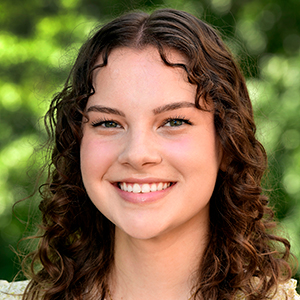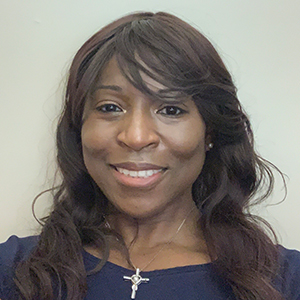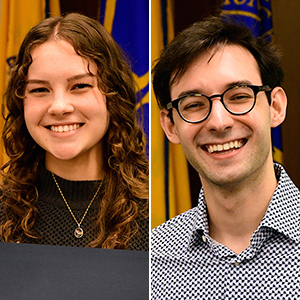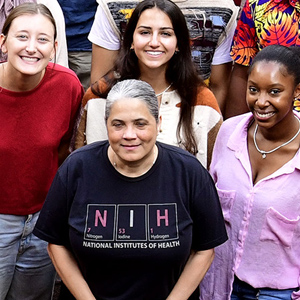Every year, dozens of groups such as classrooms and clubs welcome NIEHS representatives to discuss science, biomedical research, and careers in science, courtesy of the NIEHS Speakers Bureau. Most recently, on Jan. 9, Speakers Bureau coordinator John Schelp spoke to a local group at the University Club in Durham, North Carolina. Postdoctoral fellow Saniya Rattan, Ph.D., gave a career talk Dec. 19 at Durham’s Hillside High School.
“In 2019 alone, we visited more than 30 events, with some 1,800 participants across the Triangle and beyond,” said Schelp, describing the program’s impact in North Carolina’s Research Triangle Park area, where NIEHS is located. NIEHS Office of Science Education and Diversity Director Ericka Reid, Ph.D., launched the Speakers Bureau in 2012.
Pick your topic
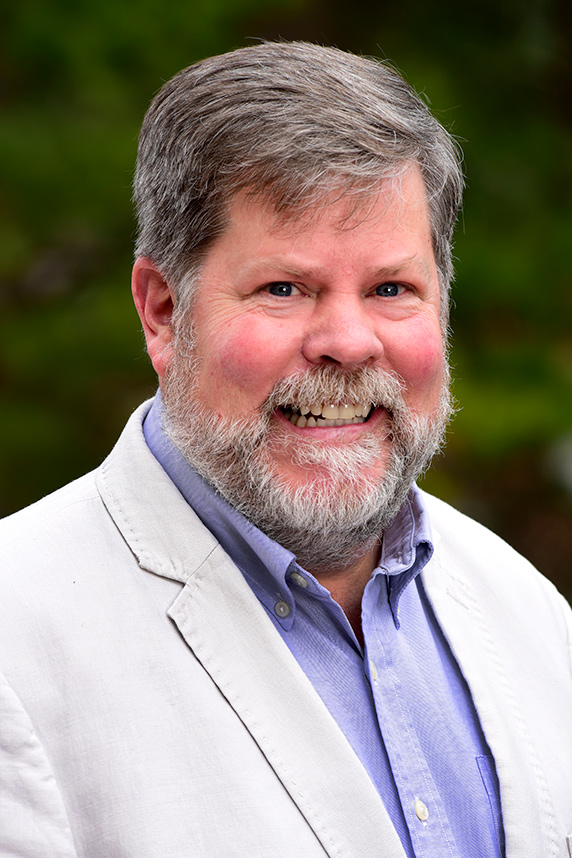 Schelp said of Speakers Bureau volunteers, “Colleagues enjoy it because it reminds them why their work is important and re-charges their batteries.” (Photo courtesy of Steve McCaw)
Schelp said of Speakers Bureau volunteers, “Colleagues enjoy it because it reminds them why their work is important and re-charges their batteries.” (Photo courtesy of Steve McCaw)When submitting a request, teachers and event coordinators select such talks as “What’s It Like to Do Science,” “Safety of Nanoscale Materials,” and NIEHS internship opportunities. Asthma, environmental justice, and elementary school science are hot topics, Schelp noted.
Deondra Rose, Ph.D., at the Duke Sanford School of Public Policy, invites Schelp to visit each year to talk about environmental justice. “They fondly remember your guest lecture as a highlight of the semester,” she wrote in an email.
Kids and dogs
Elementary schools are the venue of choice for volunteer Michelle Campbell, a biologist in the NIEHS Immunity, Inflammation, and Disease Laboratory. She visited fourth graders at nearby Bethesda Christian Academy this past September.
“I looked at the [North Carolina] core curriculum,” Campbell said, to guide her search for relevant lesson plans. She chose a hands-on activity in which students decoded a dog’s DNA.
“The DNA sequence provides the genotype, and then they draw the dog, playing the role of environment,” she explained. “In other words, all the dogs looked different, even though the students worked with the same set of genes.”
Teacher Jenna Herendeen said her students were fully engaged in the lesson. “They learned a lot,” she wrote.
Campbell’s own lab studies how the environment influences gene activity. “Teaching genetics is a lot of fun,” she said. Campbell was unable to accept several requests last year due to high priority work in her lab, but she looks forward to speaking opportunities in 2020.
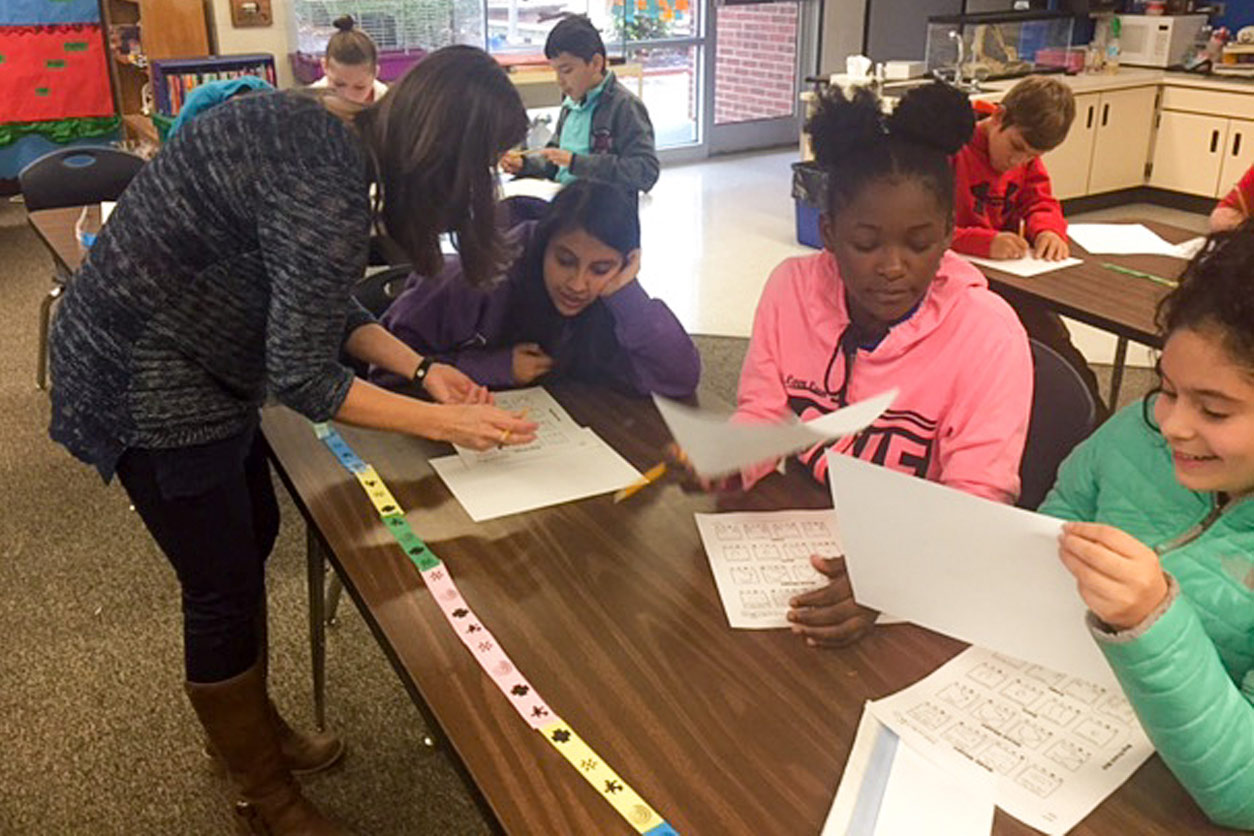 At one school, Campbell shared a genetics lesson with six classes of fifth graders. “The teacher gave me clues as to the level of each group,” she said. (Photo courtesy of Michelle Campbell)
At one school, Campbell shared a genetics lesson with six classes of fifth graders. “The teacher gave me clues as to the level of each group,” she said. (Photo courtesy of Michelle Campbell)Long distance options
NIEHS volunteers may visit more distant classrooms via the web. That is how Vicki Sutherland, Ph.D., from the National Toxicology Program (NTP), met with environmental toxicology students at Virginia’s Hampton University. “The students were fantastic,” Sutherland said of the Oct. 3 session. “They asked great questions.”
Like Campbell, Sutherland researches her topic beforehand, refining the topic with the teacher. “I gain a good idea of what they want and can outline options,” she explained.
Sutherland’s other students have ranged from middle school to older adults. She taught “This Is Your Brain (and Gut) on Chemicals,” to a lifelong learning class, where the students broadened the discussion to include the microbiome, neurocognitive issues, and more.
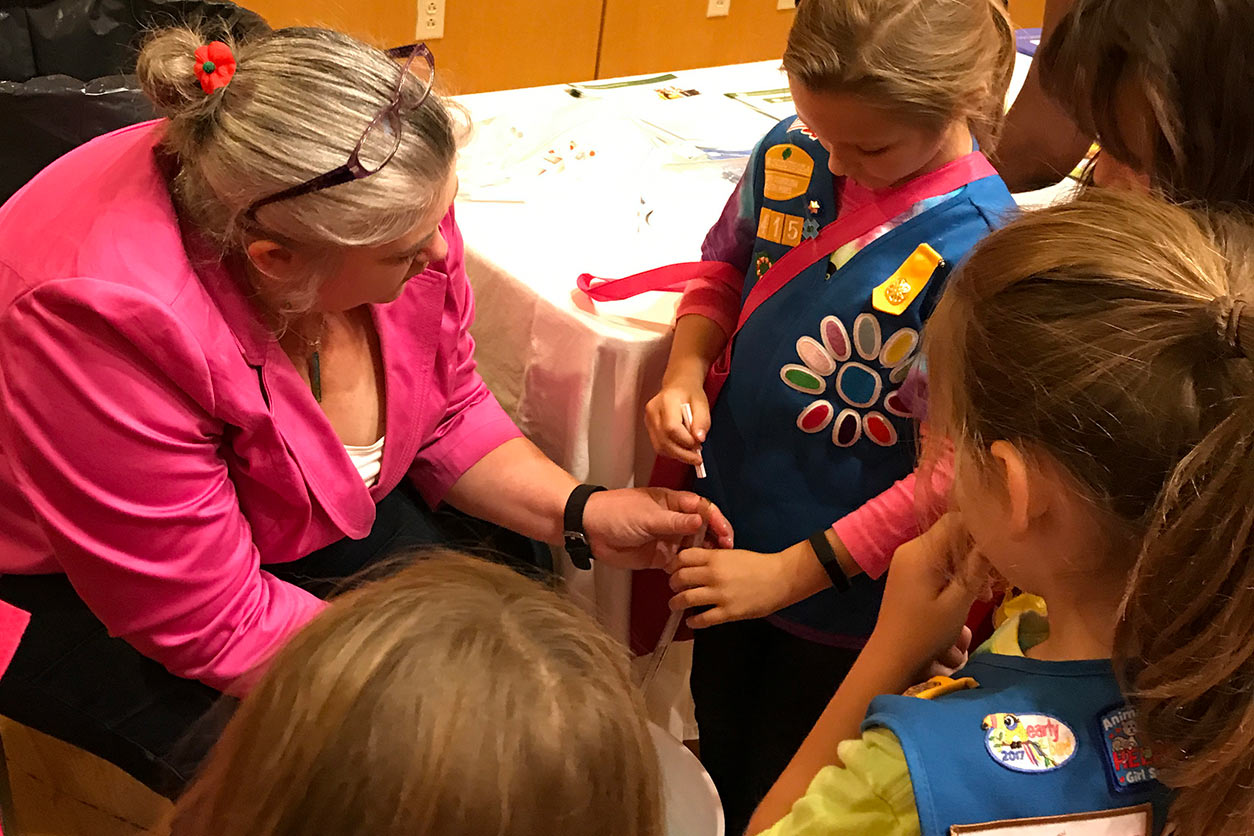 Girl Scouts are another group that uses the Speakers Bureau. Here, Christie Drew, Ph.D., head of the NIEHS Program Analysis Branch, shared a lung capacity demonstration in 2017. (Photo courtesy of Christie Drew)
Girl Scouts are another group that uses the Speakers Bureau. Here, Christie Drew, Ph.D., head of the NIEHS Program Analysis Branch, shared a lung capacity demonstration in 2017. (Photo courtesy of Christie Drew)Career interests
Sheba Churchill, D.V.M., a contract veterinarian in the NTP Cellular and Molecular Pathology Branch, averages about two visits a year for the Speakers Bureau.
At a Nov. 11 speed interviewing event at North Carolina State University, Churchill discussed both her own job and NIEHS opportunities for undergraduates. “I typically speak about my role here and animal welfare,” she explained.
“Younger kids are the funniest,” she added. “They love anything related to animals and talk about their pets, asking ‘Why can’t a dog do this?’ or sharing ‘This is what happened to my cat’ stories.”
Schelp said NIEHS is able to accommodate nearly all requests. “Speakers are already arranged for upcoming visits in February and March,” he said.





